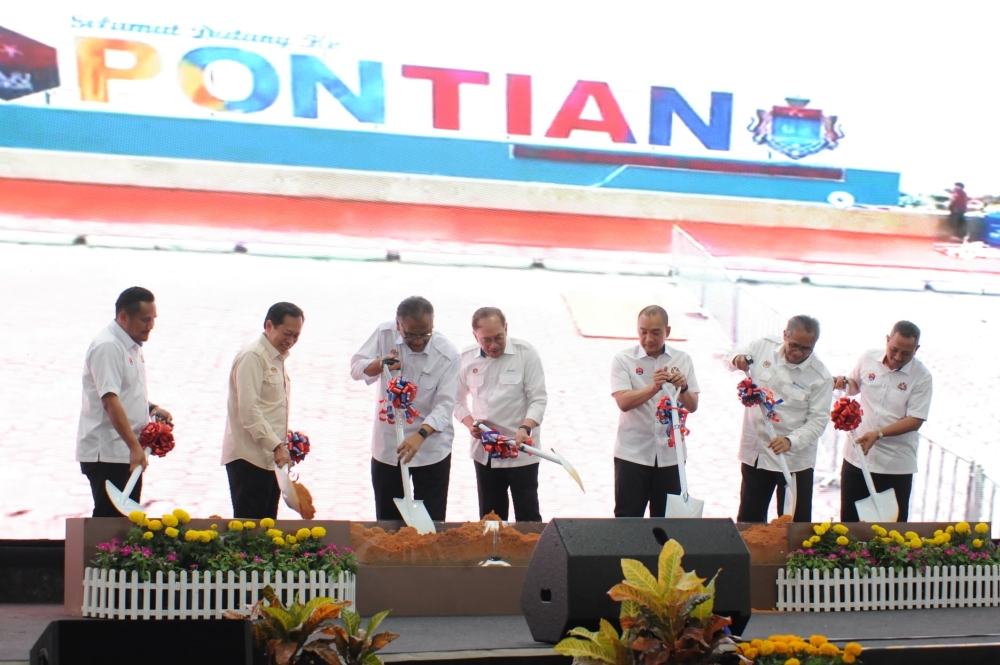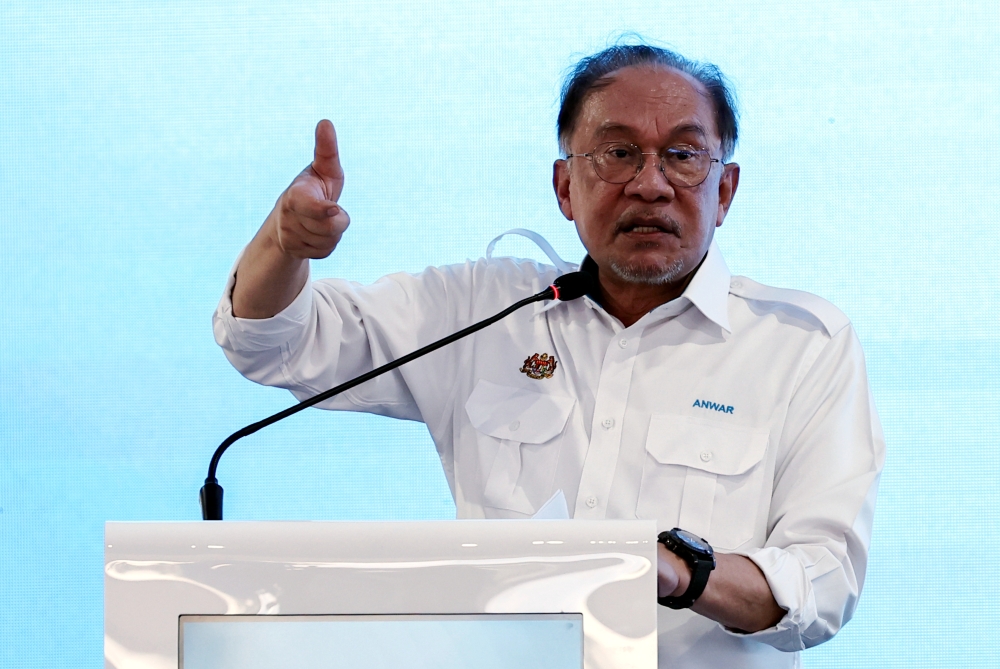SINGAPORE, May 24 — Malaysia’s Pakatan Harapan (PH) government, which is ideologically opposed to the death penalty, has made appeals to Singapore for clemency in three cases since it came to power, revealed Minister for Law and Home Affairs K. Shanmugam today.
But it is not possible for the Singapore government to oblige, he said, as it would go against due process.
Shanmugam was speaking at a workplan seminar for Central Narcotics Bureau (CNB) officers at the Home Team Academy.
“The PH government, some ministers in particular, are ideologically opposed to the death penalty and we have to respect their position,” he said.
“At the same time, we do impose a death penalty in Singapore, and I expect that Malaysia will respect that position as well.”
Shanmugam said that Malaysia’s law minister Liew Vui Keong has written a letter to the Singapore Government to appeal on behalf of drug mule Pannir Selvam Pranthaman, who is on death row but was granted a stay of execution yesterday.
Since PH came to power, Singapore has had three requests to stop executions of Malaysians, two of whom are drug traffickers, he added.
He said: “Let me be quite clear. It is not possible for us to do so, regardless of how many requests are made. When there are no legal reasons for us to intervene and the courts have imposed a sentence, we will not intervene, as a government.
“It is not tenable to give a special moratorium for Malaysians and impose it on everyone else, including Singaporeans, who commit offences which carry the death penalty,”
Unlike Malaysia, Shanmugam said Singapore does not take an ideological stance on the death penalty.
“The penalty is imposed because evidence have shown that it is an effective deterrent, not for any other reason,” he said.
The fact is that having capital penalties for drugs end up saving more lives, he said, as far more lives are lost in countries with freer drug laws due to violent crime arising from drug consumption and trade.
“Every trafficker is a dealer in death,” Shanmugam emphasised several times in his speech.
In 2018, nearly 30 per cent of total traffickers caught were Malaysians. They brought in nearly 30 per cent of total weight of heroin found here, said Shanmugam.
“One in five traffickers who brought in amounts that attracted the death penalty, above the threshold ― Malaysians. How do we go easy on Malaysians in the face of these stats?” he said.
“If we did, what will it mean for the rule of law? It will become a joke if there is a request made and we go easy. That is not the way Singapore works.”
Pannir, 31, was caught trafficking more than 51g of heroin at the Woodlands checkpoint in 2014. He was due to be executed at dawn today, but the appellate courts granted a stay of execution on Thursday.
The heroin trafficking threshold for the death penalty is 15g.
Shanmugam said Pannir had been given due process at every stage.
What Singapore would say to Malaysia
Shanmugam said he will reply to Liew with some suggestions on how to treat the drug trafficking scourge across the Causeway.
First, he said, he will ask for statistics on how many drug traffickers the Malaysian authorities pick up at their borders.
“We pick up so many Malaysians at the borders. It will be good if they can share with us how many they pick up. I assume their border control is as good, they have strict laws on drugs. I assume they have as much of a will and intention to enforce them as we do," he said.
"If they can make sure they arrest the traffickers, before they come into Singapore, that helps them and it helps us. The traffickers do not have to face the death penalty ― they can keep them in Malaysia."
Second, he said, Malaysia should arrest the drug kingpins who are operating there and “who are too scared to come into Singapore”.
“We have good cooperation with Malaysian agencies; they do a good job, we cooperate effectively. And I hope they can be given every support, and we can get more evidence on the other kingpins operating in Malaysia to be picked up."
Third, Shanmugam said, he will be urging Malaysia to publicise Singapore’s tough drug laws to potential drug trafficking groups.
They happen predominantly to be poor, less-educated, and Indian, and are willing commit drug crimes in Singapore for a few hundred Malaysian ringgit, he said.
“The trafficking situation could be dealt with and improved, for the benefit of both countries, if these people can be spoken with, their situation dealt with... and they can be told 'don’t traffick into Singapore. And if you do, these are the consequences'.”
This would be a practical way of dealing with the issues, said Shanmugam, adding: "I hope to be able to talk to my counterparts to see how much of this can be done."
“If we worry about lives, both Governments, and we do, then I would suggest that these are concrete, practical steps that can be taken. It is simply not doable to keep asking Singapore not to carry out the penalties imposed by the Courts." ― TODAY



















